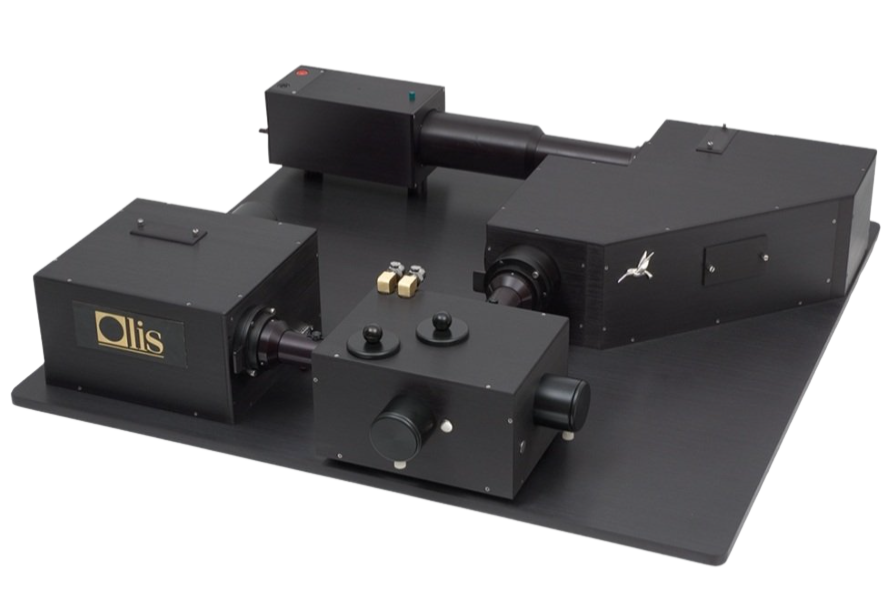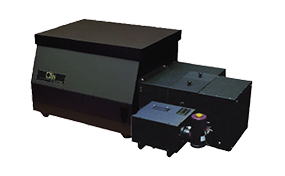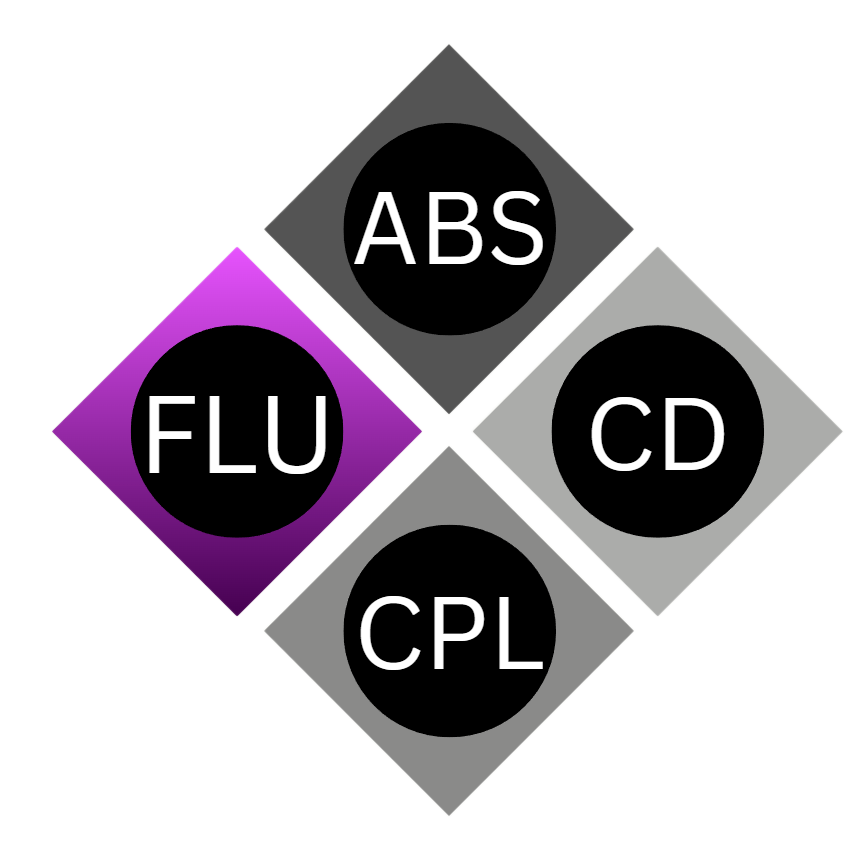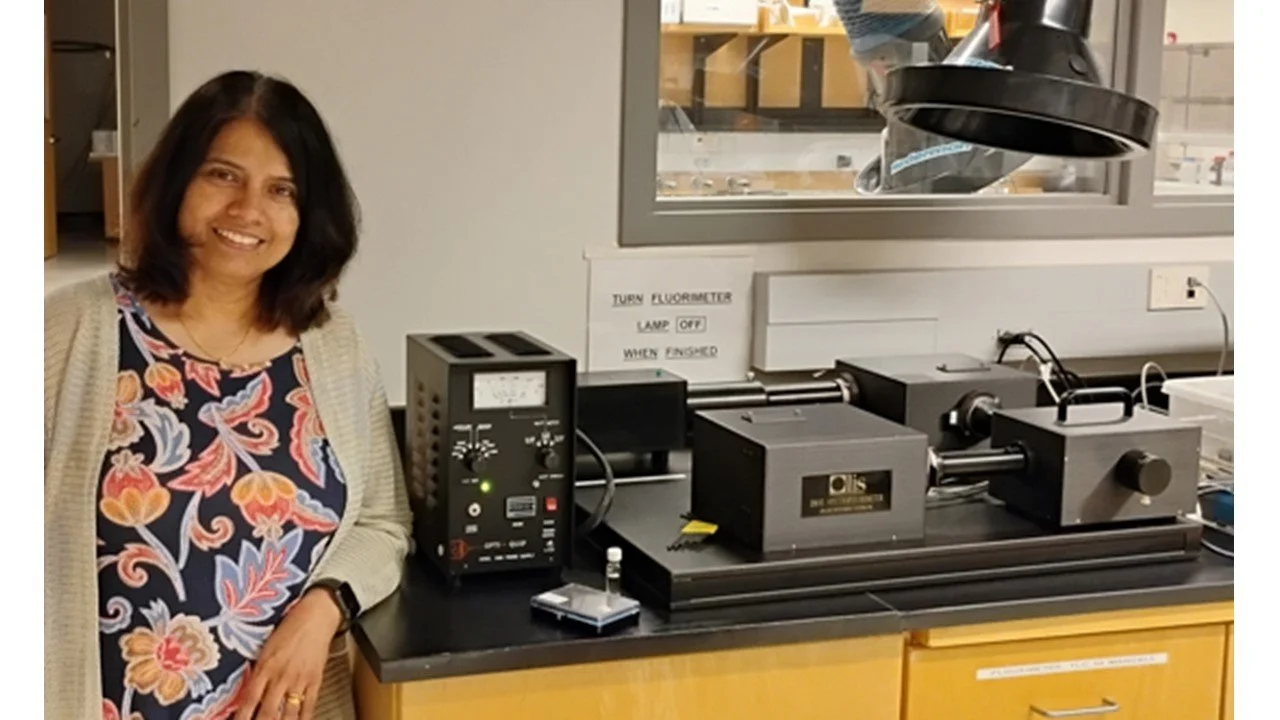
Fluorescence Models for Clear Solutions
There is a sturdiness, a robustness, a timeless quality to the OLIS fluorimeters that tells you from the first that “This is an instrument I’ll use forever.”
Few people think of OLIS first for fluorimeters, but owners of these three instruments will tell you they “love” theirs, 5, 10, 15, 20 years after purchasing one. You will, too.
Even with the best optics, a fluorimeter is only as sensitive as its detector. We rely on the best to produce the best:
-

OLIS DM 45
Highest sensitivity
Small & Least Expensive
Most Popular
Upgradeable to CPL
Available with UV/Vis 230-870 nm
and NIR 850-1700 nm
-

OLIS DM 245
Superior stray light rejection for best absorbance
Excitation scanning 200-800 nm
Emission Scanning 230-800 nm
*Absorbance Scanning 200-800 nm
Upgradeable to CPL
NIR fluorescence version, emission 850-1700 nm
-

OLIS 14F Vis & 14F NIR
Originally the great Cary 14 or Cary 17
Excitation scanning 185-2600 nm
Emission scanning choices:
a. UV/Vis model: 230-870 nm
b. NIR model: 800-1700 nm
c. UV/Vis/NIR model: 230-1700 nm
Absorbance 185-2600 nm, angstrom resolution, immeasurably low stray light
-

Phosphorescence Lifetime PLT3
Elegant alternative to TCSPC, time correlated single photon counting
Fast & flexible…collect a decay curve up to 4,000 times per second
Available as add-on to any fluorescence spectrometer and as a free-standing system
This August 2025 photograph shows Dr. Himali Jayathilake with her 18-year-old OLIS DM 45 at Mount Holyoke College. Our Customer Support Engineer, Elisabeth Millsap, was astonished when she arrived for a system-verification visit and found this “splendidly cared for” instrument awaiting her. The system – upgraded once a few years ago to Win 10 -- easily passed all performance tests. Dr. Jayathilake shared: "I was thrilled to hear from Elisabeth that all is well with our instrument and I am excited to hear more about the possible upgrades." Upgrade possibilities include upcycling it to become an OLIS DSM 45 for anisotropy and CPL or a CLARiTY 45 for turbid sample studies.



